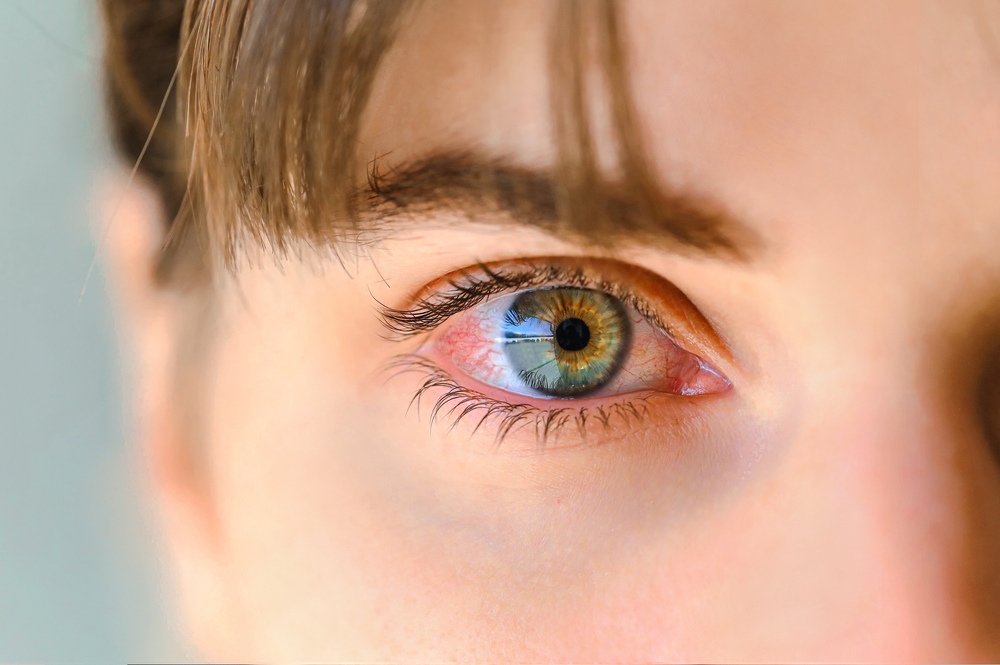
Allergic reactions occur when an individual’s immune system becomes hypersensitive to pollen, medications, or other harmless substances. Exposure to allergens can cause symptoms such as swelling or a runny nose. It can also result in eye itching or hives.
Eye allergies are a common eye problem that affects millions of individuals. While some experience occasional mild symptoms, for others the symptoms can be frequent and severe. Find out why timely treatment for eye allergies is essential.
What Causes Eye Allergies
Eye allergies develop when the immune system perceives harmless substances as harmful and overreacts to them. In most cases, an individual will not experience a reaction the first time they are exposed to the substance. It usually takes time for the immune system to build up sensitivity.
Over time, the system recognizes the allergen and creates antibodies to fight the substance when exposure occurs. Some eye allergies are seasonal and peak when grass and tree pollen is high. Many individuals experience severe reactions when the pollen count rises.
Symptoms of Eye Allergies
Eye allergies are also known as allergic conjunctivitis. The allergies occur when the eyes react to an allergen such as dust, pollen, or pet dander. Also, smoke, perfume, and mold are common allergens. Symptoms of allergic reactions often depend on the type of allergen. The symptoms include:
Itchy eyes
Burning eyes
Swollen eyes and eyelids
Tearing or watery eyes
Red eyes
Sensitivity to light
People who suffer from eye allergies may also experience symptoms such as a runny nose and swelling of the face.
Diagnosing Eye Allergies
Diagnosis is essential to get proper treatment. An optometrist examines the patient’s eyes to determine if they have allergies, dry eye syndrome, or an infection. They often use a slit-lamp microscope to look for signs of eye allergies.
They examine the blood vessels on the eye surface for swelling. They also evaluate the patient’s medical and family history. Eye allergies can be inherited. They also test for specific white cells in the eye.
Preventing Eye Allergies
Avoiding or limiting contact with allergens can help to keep away allergies. If you do not know what is causing the allergies, an allergist can perform a blood or skin test. It will help to identify the substance or allergens you need to avoid.
If you are allergic to pollen, you can avoid going outdoors when pollen counts are high. Wearing eye protection while outdoors can help to keep your eyes safe. You can use air conditioning to keep your home free from pollen and other irritants. Clean your home regularly to remove dust or pet dander.
Treatment for Eye Allergies
Timely treatment for eye allergies is essential to avoid long-term ocular damage. Without promt intervention, symptoms might worsen, leading to inflammation or even eye infections. Treatment options include:
Decongestants
Oral antihistamines
Artificial tears
Mast-cell stabilizers
Immunotherapy shots
Corticosteroids
Medications do not cure the allergy, but they can help to manage the symptoms. Your eye doctor can recommend the best treatments for you.
The best way to manage eye allergies is by avoiding the trigger. When this is not possible, the doctor can recommend a treatment plan to help. Sometimes, the eyes react to substances that do not come into direct contact with them, such as foods and insect bites. It is always advisable to consult your optometrist before resorting to OTC medications.
For more information on why timely treatment for eye allergies is essential, visit Brandon Eyes. Our offices are in Middleton and Madison, Wisconsin. Call (608) 833-7256 or (608) 833-0301 to book an appointment today.










